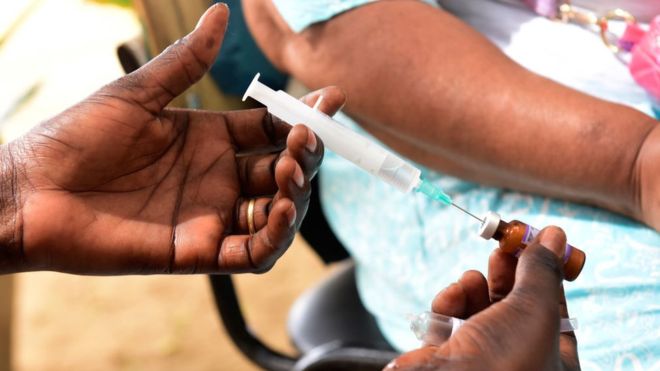Measles has killed nearly 5,000 people in the Democratic Republic of Congo in 2019, authorities said, after the disease spread to all the provinces in the country.
Close to a quarter of a million people have been infected this year alone.
The World Health Organization (WHO) says this is the world's largest and fastest-moving epidemic.
Measles in DR Congo has now killed more than twice the number who have died of Ebola there in the last 15 months.
The Congolese government and the WHO launched an emergency vaccination programme in September that aimed to inoculate more than 800,000 children.
But poor infrastructure, attacks on health centres and a lack of access to routine healthcare have all hindered efforts to stop the spread of the disease.
Four million children have been vaccinated, but experts warn that this amounts to less than half of the total in the country - and not enough vaccines are available.
The majority of those infected with measles in the country are infants.
What is measles?
Measles is a virus that initially causes a runny nose, sneezing and fever.
A few days later it leads to a blotchy rash that starts off on the face and spreads across the body.
Most people will recover, but measles can cause life-long disability. It can be deadly, especially if it causes pneumonia in the lungs or encephalitis (swelling in the brain).
It is estimated that a global total of 110,000 people die from measles each year.
SOURCE: BBC



